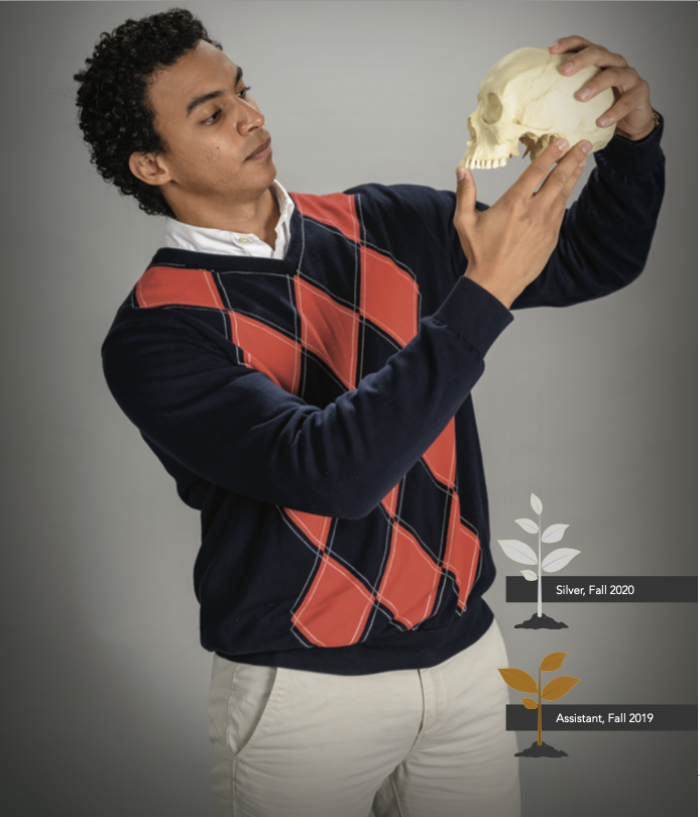SOAR Student Profiles

Omar Ali
- SOAR Position: Member; Alumni
- Major: Biochemistry
- Faculty Mentor(s): Dr. Yanseung Jeong; Dr. Scott Handy
Current Focus: Preliminary study to develop a method to pair-match the lower limb bones using Korean CT data
Additional Interests: Organic chemistry research.
Project Description
Current: Forensic anthropologists often encounter a challenge when multiple human skeletal remains are recovered in a commingled state. Unsuccessful segregation of the commingled remains will compromise the accuracy of subsequent forensic analyses. As such, tremendous efforts have been made to accurately segregate commingled remains. Visual pair-matching is one of the popular segregation methods where the shape and size of paired bones are compared using naked eyes. The idea behind the Pair-matching is that the differences in the shape and size of paired bones within an individual should be smaller than the differences between individuals. The purpose of this research is to develop a method to assess the shape and size differences between paired bones based on three-dimensional images. This method will allow to quantify the discrepancies between bones more objectively.Why does this topic interest you?
This topic allows me to dive more into the challenges that forensic anthropologists face and even to learn how successfully overcome them. This particular project enables me to gain distinctive skillsets and endless hands-on experiences, as well as to apply the scientific knowledge that I have gained so far to the various aspects of forensic science, medical science, and human osteology. Most importantly, working with Dr. Jeong has empowered me to view every obstacle as an opportunity to grow both academically and mentally, and embody the skills needed to succeed in medical school, residency, and far beyond.What are your professional aspirations?
After earning my B.S. degree in biochemistry, I am planning to continue my education and attend medical school to become a cardiologist. My part-time work as a phlebotomist in a very busy hospital has allowed me to have opportunities to shadow multiple physicians in different disciplines. I am particularly drawn to cardiology. I found cardiology most intriguing among the others. I have assisted patients from the clinic to the operating room and into the post-operative recovery room. I have witnessed the positive impact of the modern technology and advanced therapies on the lives of so many patients. Middle Tennessee State University has provided me with valuable opportunities to participate in many research projects. By participating in the projects, I could have a chance not only to present my research at the regional and national conferences but also to publish an article in a peer-reviewed journal as a co-author. These opportunities have allowed me to build a solid foundation to become an excellent physician and to serve our community better.Do you have any advice for future researchers?
Research is where we can discover answers to the questions that have not been answered yet in the literature. Research also empowers you to question theories and methodologies. It is acceptable if you chose not to pursue a career in research. But doing research along the way will help you to be open to different perspectives enabling you to consider all the parameters in the task that you will be facing. This will also stimulate your thoughts to unearth other related academic concepts and connect them whenever possible. No doubt that doing research will allow you to practice critical thinking and gain the discipline and mental concentration which will become a robust foundation for any career you will seek. Finally, I would like to share with you a quote from Dr. Neil deGrasse Tyson that you may enjoy, “You realize when you know how to think, it empowers you far beyond those who know only what to think.”


